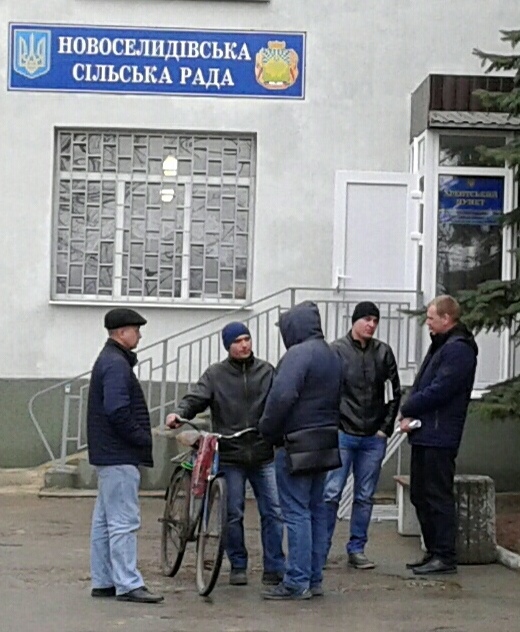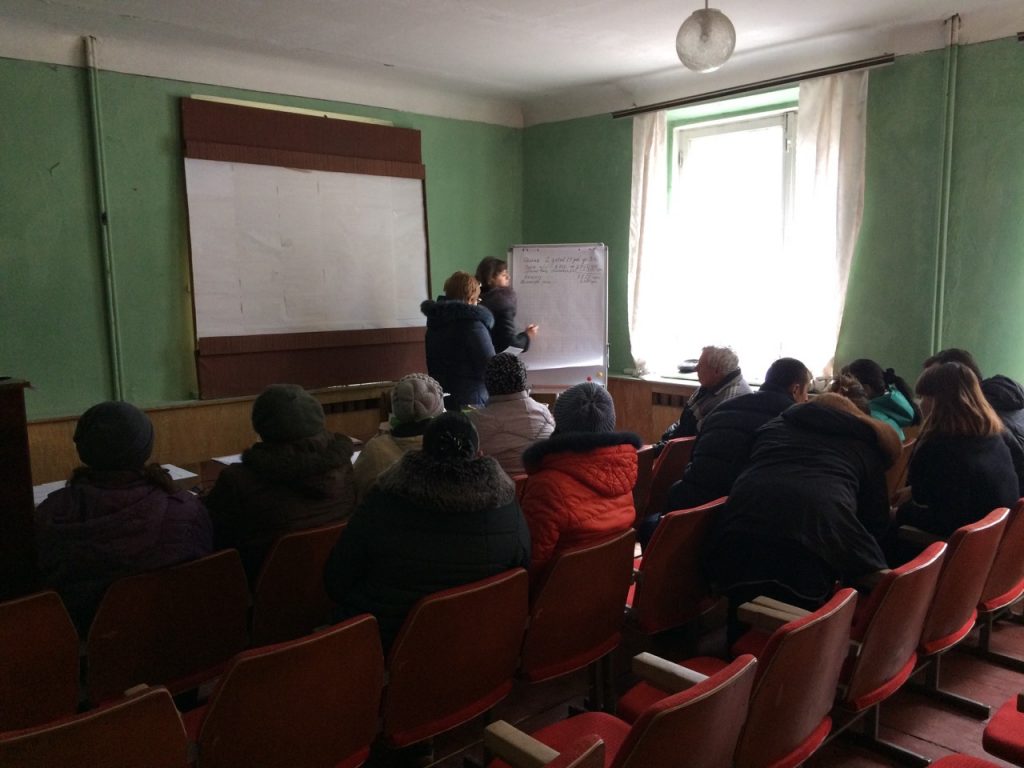Livelihoods interventions in the east of Ukraine
Since February Dorcas social workers started to carry out focus group discussions with the local population in contact line rural locations of Donetsk region. The purpose of such meetings is to identify the gaps and the needy people who are willing and able to start or renew their agricultural activities. Meetings are arranged jointly for both men and women and separately per each gender. Such approach is used to provide a more gender targeted support. Dorcas works closely with the local authorities and farmers to identify the neediest.
So far such locations were visited as: Konstantinovka and Novoselidovka.
As a result of such focus group discussions the following information was collected:
Economic situation: about 30% of the residents are employed, people work at local agricultural firms, some work for the tractor and machinery teams. Considering very low salaries, people work to get enough years for the retirement. Some of the local residents travel to Vugledar (60km), where they work at coal mines. Coal miners receive higher salaries, but their salary is being delayed up to 3 months. Unemployed families farm for living.
Challenges: the most challenging issue for women is to find a job. Some of them work at the local farm, but working there is physically exhausting, while no insurance or medical care is provided. Another big challenge prices for coal: UAH 19 000 is needed for one family to go through the heating period.
Vulnerable categories: the most vulnerable categories are young unemployed graduates, families with children, unemployed, low income, women headed households, IDPs. These are women who suffer most in the current situation.
Available farming/agricultural activities: 70% of the village residents consume 50% of what they have grown, while selling another 50%. Main kinds of FSL activities growing poultry and livestock: pigs, rabbits, cows. Many HHs grow vegetables for their own consumption. Local people grow poultry, rabbits, pigs and cows. Some families stopped farming due to expensive feed costs. Single women headed HHs don’t have enough money to increase their farming capacities.
Challenges in farming/agricultural activities: the combined feed, and other kinds of feed, sold in the village is expensive. Many people don’t have money to build or insulate hatches, which would help keep growing livestock in winter as well. HHs can’t afford buying devices to reduce costs of their farming outcome (feather remover, feed extruder, feed mill, milk separator).
People do their best to survive in such difficult situations, but as the reality shows they need external support as well for buying feed, building materials, livestock, buying agricultural machinery etc.
Dorcas plans to provide cash assistance for such activities in the following months (May-June) to help effected people to support food production, employment and income-generation for sustainable results.
Together we can make a difference!
04 April 2018

